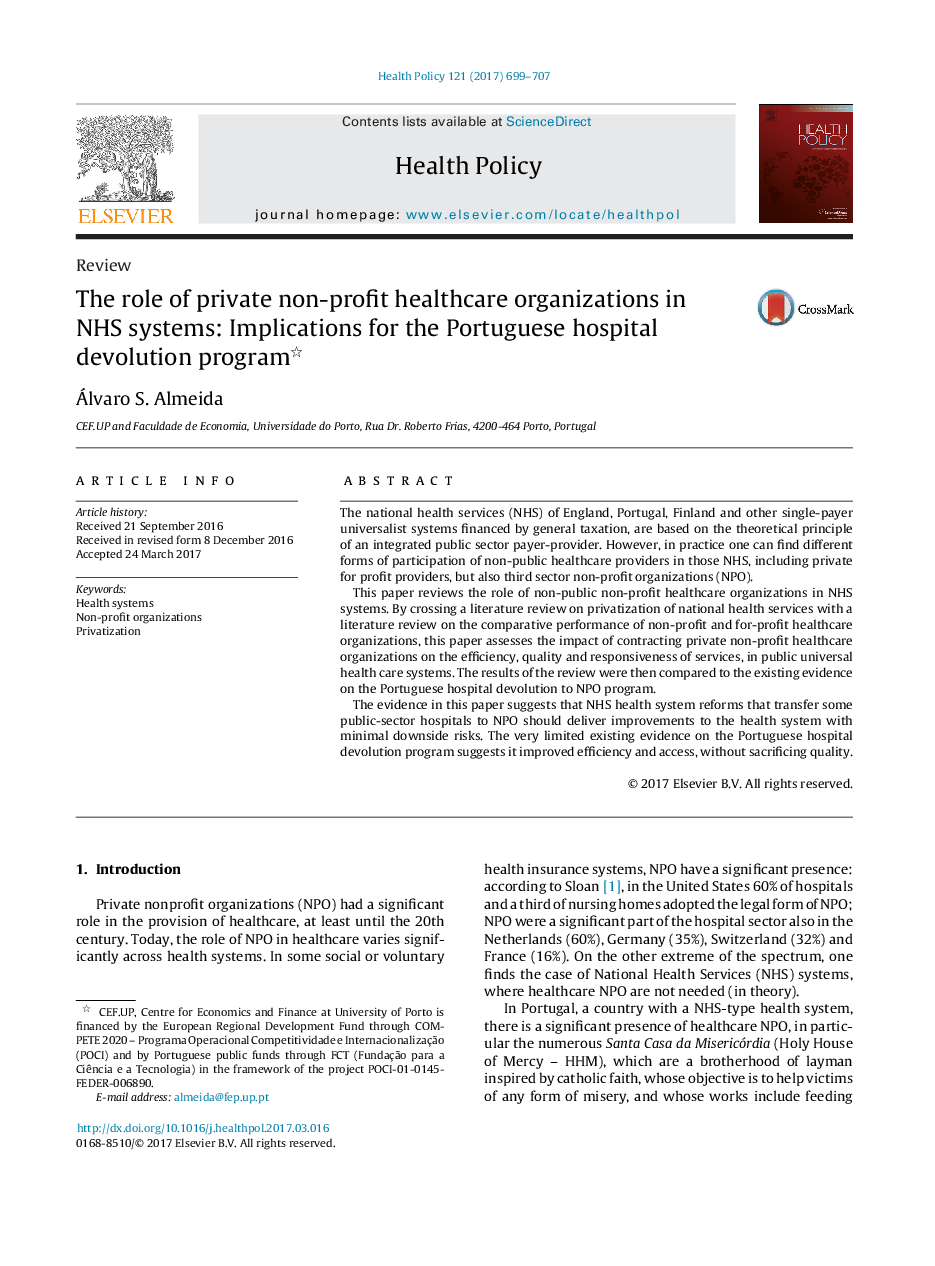| Article ID | Journal | Published Year | Pages | File Type |
|---|---|---|---|---|
| 5723326 | Health Policy | 2017 | 9 Pages |
â¢The role of non-public non-profit healthcare organizations in NHS systems is reviewed.â¢The Portuguese hospital devolution to non-profit organizations program is analysed.â¢Transferring public sector hospitals to non-profit organizations should improve access and efficiency.â¢Quality of services should not be sacrificed by the transfer.â¢Evidence on Portuguese hospital devolutions is consistent with the theoretical predictions.
The national health services (NHS) of England, Portugal, Finland and other single-payer universalist systems financed by general taxation, are based on the theoretical principle of an integrated public sector payer-provider. However, in practice one can find different forms of participation of non-public healthcare providers in those NHS, including private for profit providers, but also third sector non-profit organizations (NPO).This paper reviews the role of non-public non-profit healthcare organizations in NHS systems. By crossing a literature review on privatization of national health services with a literature review on the comparative performance of non-profit and for-profit healthcare organizations, this paper assesses the impact of contracting private non-profit healthcare organizations on the efficiency, quality and responsiveness of services, in public universal health care systems. The results of the review were then compared to the existing evidence on the Portuguese hospital devolution to NPO program.The evidence in this paper suggests that NHS health system reforms that transfer some public-sector hospitals to NPO should deliver improvements to the health system with minimal downside risks. The very limited existing evidence on the Portuguese hospital devolution program suggests it improved efficiency and access, without sacrificing quality.
